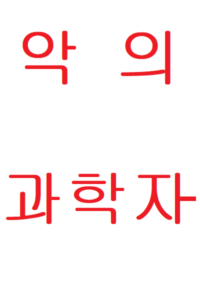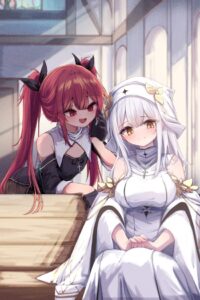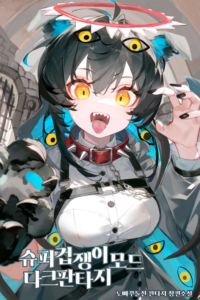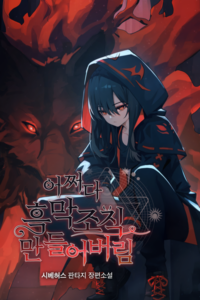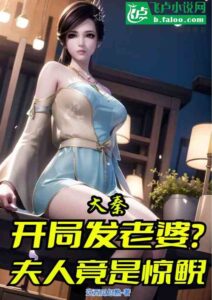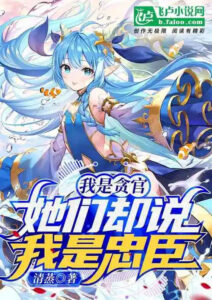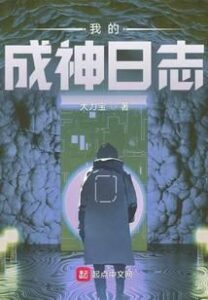#028 The Three Colors of Magic (2)
Neville Brix, the professor of the “Magic” subject, spoke.
“I believe you’ve heard the concept of ‘the colors of magic’ from Professor Istel.”
In his mid to late thirties, with slicked-back black hair and dressed in formal attire, he presented a sharp impression. Unlike Istel’s violent demeanor, he exuded a cold aura.
“The magic of ‘variegated colors’ embodies a multitude of possibilities. It can be used for strengthening, healing, attacking, bestowing—just about anything, really. It is a pure, natural state of magic, and unless you’re born with a unique constitution, it represents the innate magic of humans.”
However, he continued,
“Because of this, its efficiency suffers. With such versatility, it lacks specialized power. For instance, if two users with the same level of expertise and physical conditions each attempted an enhancement using ‘Red Light’ and ‘Variegated Color’ magic, respectively, the efficiency difference would be 10 to 3. Even if they use the same magic, one could achieve over three times the output.”
One student, a girl with green hair, raised her hand.
“What are the strengths and weaknesses of each type of magic?”
Professor Neville replied,
“‘Red Light’ offers overwhelming efficiency in enhancing the user’s physical abilities or amplifying healing powers. However, once magic is released externally, the output plummets rapidly, making it poorly suited for spells that create effects outside the body. It also has limitations in long-range attack methods.
‘Blue Light’ is the opposite; it remains remarkably stable externally, making it very useful for casting magic. While its raw output is weaker compared to Red Light, it compensates with versatility—capable of attacking, defending, bestowing, and more. However, since it poorly harmonizes with the human body, it’s difficult to use for healing or body enhancements.
‘White Light’ lacks the output of Red Light and the versatility of Blue Light. But it uniquely allows direct transfer of magic to others, resulting in highly efficient healing or support.”
Professor Neville spoke clearly, making it easy to understand despite his fast tempo. However, his tendency to add personal opinions and elaborate on unsolicited topics made his explanations lengthy.
While Istel’s class resembled a chant-like military training, this felt closer to Chrome’s university lecture in a past life.
“Once you attempt a ‘dyeing’ process, trying to re-dye with a different type of magic turns into a grueling task. That’s also why you’re given a week to make a choice. Don’t regret it.”
After elaborating on magic, he shifted to the topic of the ‘Magic’ course.
“The theory of magic, referred to as ‘The Art of the Mystical,’ is straightforward. You draw ‘formulas’ on the outside of your body and manipulate the magic accordingly. The type of formula you draw determines the effects, and with high enough proficiency, it’s also possible to draw multiple formulas simultaneously.
This subject holds great universality, with infinite possibilities dependent on the practitioner’s creativity. It’s said that to fully claim such magic as your own and carve out new paths is what it means to master the ‘Art of Magic.’”
Neville Brix glanced at the students gathering their attention towards him.
“To be honest, ‘Blue Light’ and ‘Magic’ are tough for dimwits. Don’t come to class looking all pitiful and instead learn to compromise.”
<><><>
The students attending their first ‘Support’ class were taken aback.
The professor seated at the front looked no older than about 10 years old at best.
“Ah! You’re all here! Welcome, everyone! I was truly amazed as you passed that grueling exam!”
The boy’s eyes sparkled like a deer’s; his voice was clear and bright, and his stark white hair paired with his lively skin exuded an almost fairy-like mystique.
A few girl students couldn’t help but cover their mouths or blush at the sight.
“Is he the professor’s kid or little brother?”
“Maybe a squire?”
“That’s possible. But isn’t it a bit unfair that we can’t have any attendants while the professors can?”
As if he’d heard the students murmuring, the white-haired boy smiled and said,
“Oh, I think there’s been a misunderstanding! I am ‘Emilio Lafeur,’ the professor of the ‘Support’ subject! I look forward to working with you all!”
With a little bow, his innocent and charming demeanor made not just the girls but even some of the boys smile warmly.
Feeling the same instinctive affection as one does when seeing a little creature squirming around, the students were charmed.
Of course, some thought it was strange to have a kid as a professor, but in the current atmosphere, they sensed that speaking up would likely result in a beatdown.
“The ‘Support’ class, unlike the previous two subjects, focuses on training operatives who help allies from the rear rather than directly taking down enemies. It may seem humble and unglamorous at first glance, but having a skilled support operative can mean the difference between life and death for a party.”
Some students nodded at Emilio’s words.
Most of them had a fair level of knowledge, understanding that as one gains more insights, it’s not just about defeating foes but also recognizing the immense value of those who assist and sustain combat capability.
“‘White Light’ magic is inherently compatible with the human body, and using this magic for standard healing spells can produce exponential effects. It’s not confirmed yet, but even the Star God Church is considering plans to teach priests ‘White Light.’”
Noticing the captivated expressions on the students’ faces, Emilio suddenly realized he had forgotten something important and hurriedly added,
“For those who find it tough to fight directly or are averse to using deadly magic, I sincerely hope you’ll join the ‘Support’ course! I will do my utmost to help you!”
“Hehehe, I almost forgot to say that!” the cute boy stuck out his tongue, causing several students to clutch their hearts and stagger down as if their legs had given out.
Only a tiny handful, those who knew the truth, looked on with expressions reminiscent of rotten fish.
<><><>
“…What a terrible old geezer.”
“Huh? Who are you talking about?”
On the way back after the Wednesday hands-on training, I waved dismissively at Ligret’s question, considering the upcoming schedule.
In the ‘Planetarium’, there were several factors that determined the protagonist’s strength, a major one being the ‘Color of Magic.’
In terms of other games, it was akin to determining a main class.
‘Red Light’ was for melee combat classes such as warriors or assassins, and conditionally, archers.
‘Blue Light’ was for mages or summoners, while ‘White Light’ leaned towards healers or buffers.
It was indeed possible to train in a basic state without deciding on the color of magic, but the difference in mana efficiency in specialized fields was significant, and the advantages gained from maintaining a variegated color were nearly non-existent unless in very peculiar cases; thus, ‘dyeing’ was almost a necessary process.
“I need to choose my support subject and subclass carefully.”
Tactics. Hunting. Alchemy. Night Watch. Medical. Literature. General Education.
Some students were puzzled as to why they’d be learning such subjects in a school aimed at training elite forces against the demon tribes, but in truth, those elective subjects had a profound connection to combat courses.
When the battle shifted from one-on-one duels to clashes between groups, it became crucial for the commanders at the frontlines to comprehend tactics, separate from the strategists in the rear.
The hunting course taught not only hunting skills but also knowledge about the monsters and beasts controlled by the demon tribes, tracking techniques, and how to erase one’s own traces.
Those with knowledge of alchemy could create useful consumables that aided in battle or gain the discernment needed to analyze an opponent’s magical tools.
With a talent for night watch, one could create specialized gear tailored for magic users themselves or inspect equipment damaged during combat.
The combination of medical knowledge and healing magic showed efficiency several times greater than either alone.
Literature assisted in interpreting complex spells and cultivated creative thinking in users, leading to advancements in magical prowess.
The only exception was general education; its purpose was almost like a refuge for those who genuinely couldn’t read or were so engrossed in combat subjects that they neglected their electives. However, it was a necessary subject to prevent students from becoming socially deficient individuals who rebelled against commands from authority or acted recklessly in their pursuit of battle.
“Though I’ve pondered this quite a bit, perhaps this really is the optimal combination for me.”
You may also like Mesugaki Tank Enters The Academy

